After our deep dive into Japan’s 12 candidate locations in January, we begin our two-part analysis of the 20 operators that have expressed an interest in a Japan IR license. This issue we look at the “Big 4” – MGM Resorts, Galaxy Entertainment Group, Las Vegas Sands and Genting Singapore.
In Part 1, published as the cover story to the January 2020 issue of Inside Asian Gaming, we described the current industry maneuverings in Japan as similar to a mass dating game, with the “girls” being the candidate locations and the “boys” being the candidate operators who are courting them.
The 12 girls discussed in Part 1 will eventually be whittled down to just three, with Osaka currently the red hot favorite, followed by Yokohama, Nagasaki and Wakayama as the next most likely.
In November last year the Ministry of Land, Infrastructure, Transport and Tourism proposed 4 January to 30 July 2021 as the period for local governments, hand in hand with their chosen IR operator partners, to submit their IR applications to the national government.
 This means each of these girls has the rest of 2020 to choose a boy to start dating. Unsurprisingly, there is no shortage of suitors – IAG is currently tracking a peloton of 20 companies in the race. This issue we take a look at the “Big 4” companies with the reputation and financial clout to go all-in on a Japanese IR, with the remaining 16 contenders to feature in the upcoming April edition of IAG.
This means each of these girls has the rest of 2020 to choose a boy to start dating. Unsurprisingly, there is no shortage of suitors – IAG is currently tracking a peloton of 20 companies in the race. This issue we take a look at the “Big 4” companies with the reputation and financial clout to go all-in on a Japanese IR, with the remaining 16 contenders to feature in the upcoming April edition of IAG.
THE BIG 4: 800-POUND GORILLAS
You’ve heard the old joke, “Where does an 800-pound gorilla sit?” Answer: “Anywhere he wants to!” Each of these four “800-pound gorilla” companies is indeed an absolute behemoth in the global gaming industry.

MGM RESORTS

PROS
- Last man standing in Osaka – only operator to apply to submit a bid
- Has held long-standing commitment to Osaka
- Globally recognized brand with large scale IRs in Las Vegas and Macau
CONS
- Withdrawal of Osaka rivals potentially paints worrying picture
- Recent sale of Las Vegas assets suggests financing issues
- Long-time Chairman and CEO Jim Murren standing down
Way back in 2014, MGM Resorts President Bill Hornbuckle delivered an “MGM Osaka” presentation to the Mizuho Investment Conference in Tokyo. Hornbuckle noted it could have a casino ready by 2019, if enabling legislation was passed quickly enough. That date seems laughable now, given most candidate operators have expressed misgivings in response to Osaka’s desire to have its IR open in time for its hosting of the World Expo from May to November 2025. It’s been a very long Japan journey already for MGM, and it’s still at least six years away from the IR doors opening for the first time.
Despite not officially announcing its “Osaka first” policy until January 2019, MGM Resorts Japan has long focused its efforts on Japan’s second largest metropolitan area. This has earned it front-runner candidate operator status in Osaka – and therefore in Japan – given Osaka’s dogged pursuit of an IR has placed the city as the undisputed front runner location.
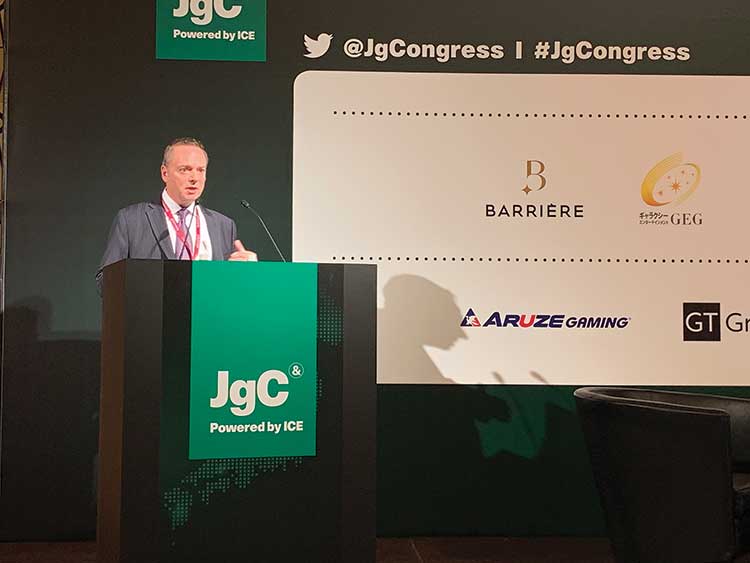
MGM’s rivals in Osaka have withdrawn from the process one by one, some lured away by Yokohama, some simply not explaining why, leaving MGM as the last man standing in Osaka. Pundits wonder why the mass exodus – is Osaka demanding too much? Certainly as the last man standing the power dynamic between suitor and suited changes and it might now be MGM’s turn to make some demands of its own.
MGM is not as financially strong as the other three companies in this “Big 4” and over the last 12 months has been “selling the farm.” The sale and lease back of its major properties in Las Vegas – MGM Grand, Bellagio and Mandalay Bay – has freed up at least a good chunk of the billions in cash it will need in Japan.
To date MGM Resorts is the only international operator to formally enter into a consortium in pursuit of a Japan IR license, after partnering with Japanese leasing giant Orix in March 2019.
MGM’s man in Japan Ed Bowers has been chipping away for years in his low-key, no-nonsense style and MGM deserves its current front runner status.

GALAXY ENTERTAINMENT GROUP

PROS
- Strong financial position, with US$6 billion cash war-chest on its balance sheet
- Proved itself highly capable in Asian market
- Partnership with SBM adds stylish European flair
- Open to multiple locations
CONS
- Only IR operations are currently in Macau
- Chinese links may be viewed as a negative
Nobody can deny the extraordinary success of Francis Lui’s Galaxy Entertainment Group. It’s easy to forget the company has only been around as a gaming operator for some 14 years. For its first decade, Galaxy was best described as the undisputed rising star of the global industry, but rising star it is no more. Instead, it rightfully sits in the absolute top echelon of the world’s IR companies, with perhaps only one or two peers.
While some, admittedly not many, criticized the incessant hoarding of cash over the years as an unsophisticated underutilization of resources, it is Galaxy which is having the last laugh, with a stupendous US$6 billion metaphorically burning a hole in its pocket – just the ticket given the kind of telephone numbers being thrown around for potential investments in a Japanese IR.
While getting to the starting line a little later than MGM (and who didn’t?), Galaxy has thrown resources at their Japanese endeavors with gusto. The Galaxy Entertainment Japan office boasts a head count of over 20 employees, one of the largest in Japan.
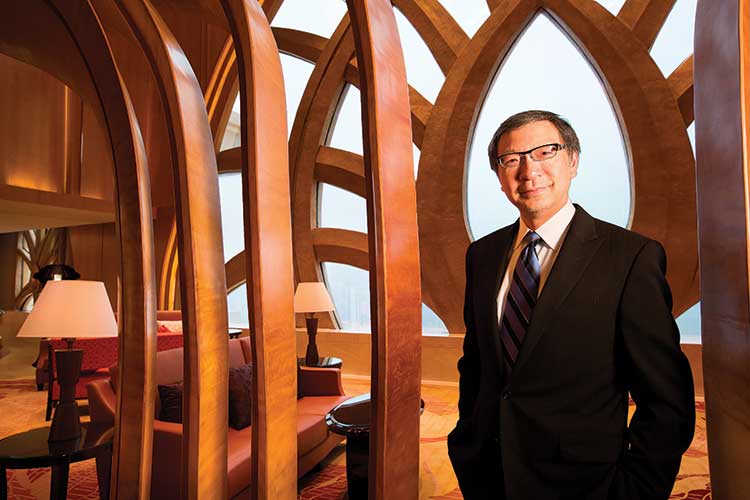
Galaxy has made no secret of the fact it has pursued multiple locations across Japan, rightfully justifying this as “being engaged in the process.” This allowed it to gracefully withdraw from Osaka when the decision was made to focus on Yokohama and other candidate locations, with Lui noting the company remains “fully committed to Japan, to assist the Government to achieve their tourism and economic goals and we believe GEG’s healthy balance sheet and track record in developing and operating the world’s most successful IR, combined with SBM’s 150-year track record in creating the world’s first IR destination at Monte Carlo, can make that a reality.”
While some may put forth Galaxy’s Chinese connections as a negative given the sometimes frosty relations between the two countries, others will argue the reality that China is the largest source of inbound tourism to Japan, and Galaxy’s undeniably stellar track record in servicing this market should stand it in good stead.
Given Japan’s fascination with all things French (there are more Michelin-starred restaurants in Tokyo than in Paris), Galaxy’s secret weapon may yet prove to be its partnership with Monte Carlo’s 150-year-old Société des bains de mer de Monaco (SBM), owner of the famed Monte Carlo Casino and the Hôtel de Paris. Just imagine the star power Prince Albert of Monaco would bring with a royal visit to Japan during the final push from the Galaxy and SBM bid!
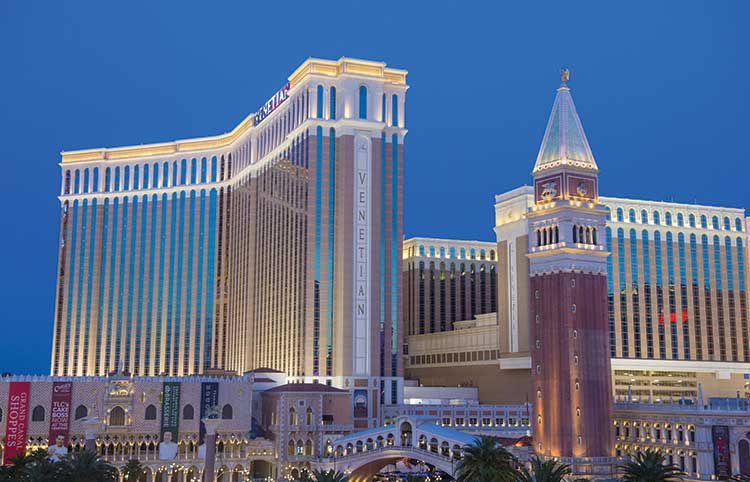
LAS VEGAS SANDS

PROS
- World’s richest IR company, renowned as global leader in IR-based MICE
- Runs world’s most profitable casino in attractive Singapore market
- Well connected politically
CONS
- Likely to demand lion’s share in any consortium
- Lack of a strong local presence or obvious long game in Japan could be interpreted as a sense of entitlement
- History of failing to play well with others
Monday 3 May 1999 saw the opening of a new casino on the Las Vegas Strip, which rather unimaginatively, or perhaps as an homage, simply took its name from the previous hotel casino which had been on that site since 1952.
That name was Sands, and so began a 21-year-run of profitability, putting aside one infamous hiccup during 2008’s global financial crisis, which has seen owner Sheldon Adelson become the 17th richest American, according to the 2019 Forbes Rich List. It’s also seen Las Vegas Sands Corporation grow into the world’s largest IR company, with a market cap of US$50 billion.
Famous for what some call bluff and bluster and others call vision and genius, Adelson is the man behind the most famous piece of land in the global gaming industry – Cotai. At barely two square kilometers in area, this is ground zero for Macau’s IR industry – and therefore the world’s IR industry – and has for the past decade seen gross gaming revenue (GGR) in the tens of billions of US dollars each year. Sands controls three properties along the Cotai Strip: The Venetian Macao, Parisian Macao and Sands Cotai Central (soon to be re-launched as The Londoner).
On top of all that, Sands was one of two successful bidders for the Singaporean IR industry born in 2010, and the result is the iconic Marina Bay Sands, often touted by those in Japan as a beacon of everything Japan is trying to achieve in giving birth to its own IR industry.
Sands and Galaxy are arch rivals in Macau, despite originally being partners in the winning of a Macau license some 20 years ago, or perhaps partially because of it. Since getting their divorce the two leaders, Adelson and Lui, have fought bitterly for market share in the world’s largest gaming market.
For years, Sands has had its nose in front in that battle, but there are chinks in the armor of the Sands empire. Its charismatic and entrepreneurial leader has been undergoing treatment for non-Hodgkin’s lymphoma, although it should be noted Adelson has returned to work after some months away. It is perhaps unfair to raise Adelson’s health but it is the reality of the situation.

In 2019 Francis Lui was named number 1 on the IAG Power 50 list of the most powerful people in the Asian gaming industry (see iagpower50.com), just pipping Adelson by a mere two points (7,764 points to 7,762). For the previous six years, the positions had been reversed, with Adelson holding the top spot. As the judges commented at the time, “Right now Sands is the bigger company, but Lui is the bigger man.”
Whether the “bigger company” can get over the line in Japan remains to be seen. Many point to Adelson’s financial support of US President Donald Trump, and Trump’s connections to Japanese Prime Minister (and vociferous supporter of IRs in Japan) Shinzo Abe, as a sign of Sands’ likely success. But others point to the fact that Sands is notoriously inflexible, insistent on doing things “their way”, and has a predisposition against partnerships – something that may not sit well with the consortium-based approach which seems to be emerging for Japan’s IR industry.
Only time will tell who is right.
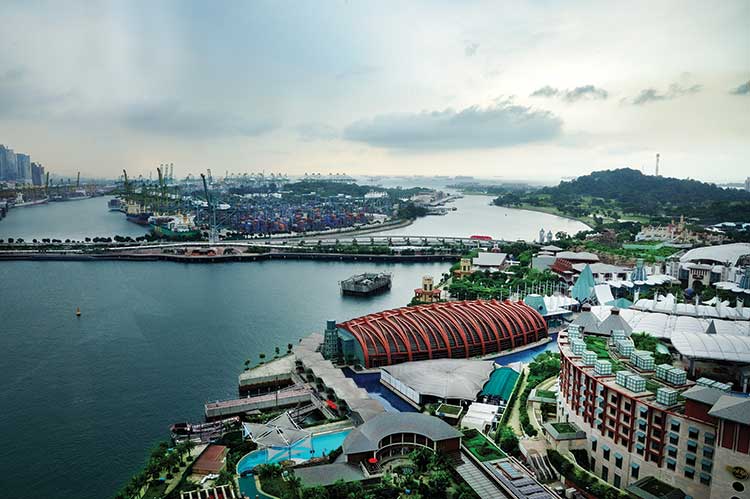
GENTING SINGAPORE
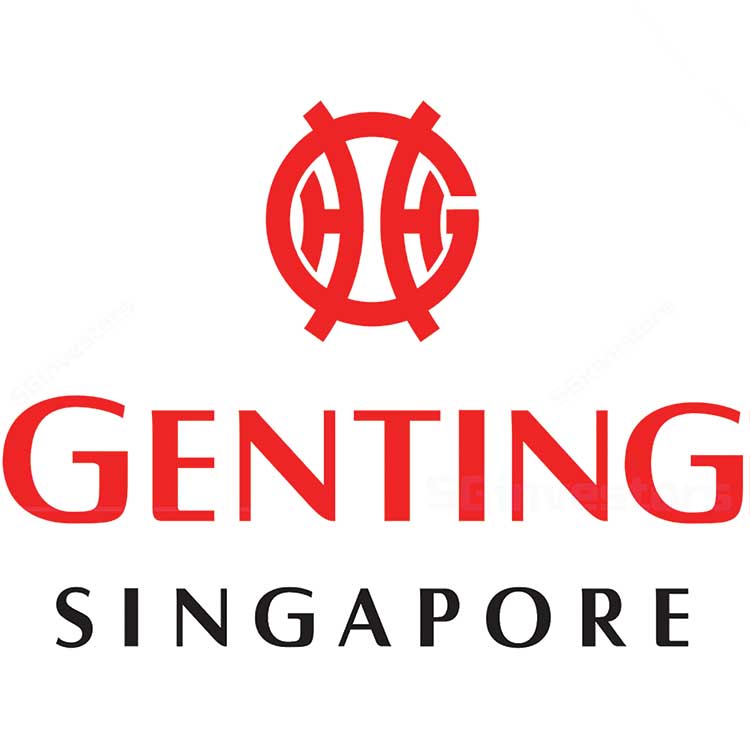
PROS
- Has opted to fly “under the radar” in Japan
- Singapore market known to be attractive to Japan
- Singapore’s strong track record in effective responsible gambling initiatives
CONS
- Has opted to fly “under the radar” in Japan
- Has enjoyed only mixed results in UK, US and Bahamas markets
- Has set US$10 billion development cap in Yokohama
The least well-known of the “Big 4”, Genting is nevertheless a global gaming industry giant with a 55-year history. Founded by Malaysian Tan Sri Lim Goh Tong, what was then known as Genting Highlands (now Resorts World Genting) opened for business in 1971 after many years of challenging mountainous construction. About an hour’s drive north of the Malaysian capital of Kuala Lumpur, Resorts World Genting remains the spiritual home of the group and is owned by group parent company Genting Berhad.
The subsequent decades saw much growth and the handover by Lim to his son Tan Sri Lim Kok Thay in 2003. KT Lim, who ranked number 4 on the IAG Power 50 list in 2019, remains Chairman of the company, overseeing a global empire with Resorts World branded properties in Malaysia, Singapore, the United Kingdom, the Bahamas, the Philippines, New York state and Las Vegas (under construction) – but notably not Macau.
Shrewdly, Genting has chosen to spearhead its campaign in Japan through its listed subsidiary Genting Singapore, one of two eventual winners in the Singapore licensing process which played out in the first decade of this century (the other winner being Sands, leading to the rise of Marina Bay Sands, as explained earlier). Japan has long yearned for the Singaporean IR model, at least in part, and some of Singapore’s fingerprints can be seen in rules already laid out for Japan such as a steep entry fee for locals, a tightly restricted gaming floor area and an aversion to junkets. Singapore’s squeaky clean image also plays into the sensibilities of the top end of town in Japan.
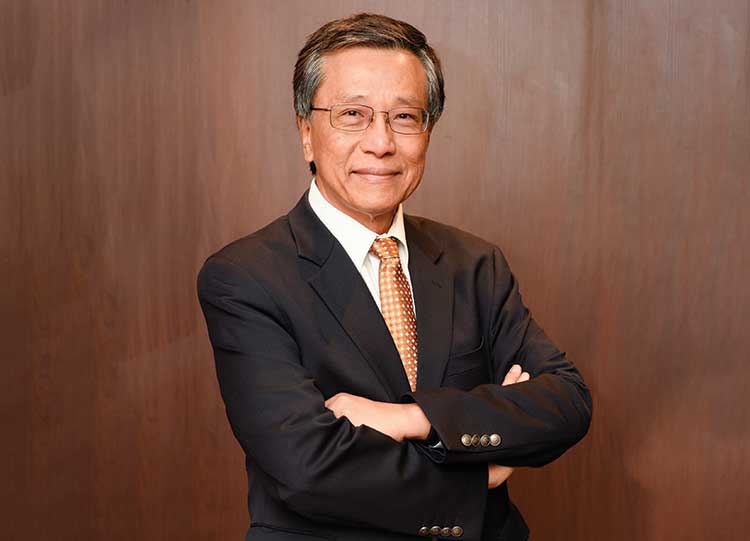
Most notable of all for Genting Singapore is its dogged “no comment” policy, which has been a feature of Genting public relations for decades. This can work for and against. In support of the former is the adage, “Better to stay silent and be thought a fool than to open one’s mouth and remove all doubt.” But appearing on behalf of the opposite contention is, “Nature abhors a vacuum” – in this day and age of social media and widely available instant communication platforms, various commentators and even the public at large will happily jump in to create a narrative if the company doesn’t create its own.
Genting Singapore President and CEO Tan Hee Teck has done a serviceable if bland job selling the company in his very few public appearances, mostly at the fledgling industry trade shows starting to pop up around the Japanese IR industry. This blandness may well be by design and who knows what machinations are going on behind the scenes.
Genting managed to get the job done in Singapore, but that was essentially a home fixture. Let’s see how Genting plays an away game.
We will continue our deep dive into Japan’s candidate operators in our upcoming April 2020 edition of IAG, in which we will take a close look at the remaining 16 candidates.




























